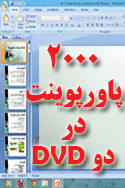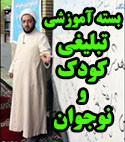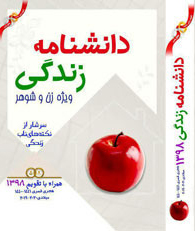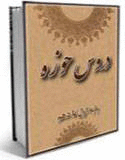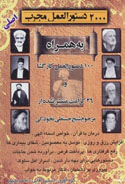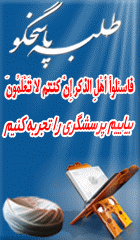Why do they call Prophet Isa “The Spirit of God”?
Question:
Why do they call Prophet Isa “The Spirit of God”? And what is meant when it is said that Allah blew his spirit into Prophet Adam?
Answer:
Although certain characteristics are shared by different individuals or things and can be found in numerous places, but sometimes for certain reasons, a certain thing or person is identified with that characteristic, despite it not belonging exclusively to it. For example, out of all the things in the universe which all belong to Allah, the Ka’bah has been introduced as the ‘House of Allah’. It is along these lines that although all the prophets are associated with the spirit of Allah, Prophets Adam and Isa, because of their special creation, are known by the title of “Spirit of God”. It is as a result of this that Prophet Isa has come to be known as Ruhullah or the “Spirit of God”, without such title bringing the least flaw in his servitude or bringing him any degree of divinity.
Detailed Answer
There is a verse in the Holy Quran that introduces this prophet of Allah’s as such﴿إِنَّمَا الْمَسيحُ عيسَى ابْنُ مَرْيَمَ رَسُولُ اللهِ وَ کَلِمَتُهُ أَلْقاها إِلى مَرْيَمَ وَ رُوحٌ مِنْه﴾
[1] (Jesus, son of Mary, is only a Messenger of God, His Word, and a spirit from Him whom He conveyed to Mary).
It is also relying on this verse that Ruhullah or the “Spirit of God” has been counted as one of his names in Islamic literature.
On one hand, we must note that the issue of the spirit is one that, according to the explicit assertion of the Quran, we cannot understand entirely and encompass with the limited human intellect we bear [2]. Nevertheless, we see many different verses in the Quran that give numerous meanings for the term “Ruh” or spirit, all of which share a common theme. Here are some examples of the meanings mentioned in the Quran:
1. A proximate angel of Allah’s who delivers Allah’s message to the prophets. [3]
2. A divine book. [4]
3. Aid from the unseen from Allah to His servants. [5]
4. One of the characteristics of Prophet Isa.
Regarding this final meaning, we see that the Quran once names Prophet Isa as a spirit of Allah’s [6], and in another instance, says that he was supported and backed by the Ruh al-Qudus.[7] This difference in wording can be because of the different dimensions of the spirit which isn't very clear to us.
All of what was said might not give rise to any particular question in anyone’s mind; it is certain beliefs of the Christian faith that causes questions to rise regarding this title of Prophet Isa, namely the trinity [8]. The Christians would use these verses to convince the Muslims that even the Quran attributes certain things to Prophet Isa that eventually prove what they believe in, such as him being deity and not the creation of God and rather, the son of God.
It should be known that this matter has existed from a long time ago and our infallible imams have given us appropriate answers to them. Here are two examples:
1. Hamrān asked Imam Sadiq (as) for an explanation on the verse﴿وَ رُوحٌ مِنْه﴾The imam (as) replied: “What is meant by “روح” here is a creation that Allah (swt) has embedded in Isa. [9]
By saying this, the imam implied that just because anyone has the spirit of God in him doesn’t necessarily mean he will also become like his lord.
2.On another occasion, in response to Muhammad bin Muslim in this regard, the sixth imam (as) says: “The same way the lord chose a house from all the houses and named it ‘His’ house, He chose [Ibrahim] from all the prophets and announced him as his ‘friend’ and khalil, and just like other similar cases, He called Isa ‘His spirit’ because he had chosen his spirit from all the other spirits, and this isn't the least in conflict with his createdness; he was just another prophet [like the rest of the prophets] and would carry out His [God’s] will.[10]
Here, the imam (as) is pointing to a very important point, and that is sometimes Allah makes a quality that many share, stand out in a particular individual or thing, but this doesn’t disprove it for the rest. For example:
1. Although this whole universe belongs to Allah [11], He has stressed on a very small area of it (Makkah and the Ka’bah) and used the title ‘My House’ for it [12].
2. Although the Quran unequivocally states that all the prophets and angels are Allah’s chosen ones [13], yet in other places of the same holy book, Allah has touched on specific prophets as his chosen ones.[14]
3. And finally, although divine spirit has been blown into all the prophets, and even believers who aren't prophets, and they are all supported by Allah [15], but this quality has been highlighted in Isa and also before him in Adam [16].
Therefore, we can't see this quality of prophet Isa as something that implies divinity, as if God has incarnated in him.
The first thing Prophet Isa said in the cradle was that he is the servant of the lord [17], and in the end of his mission he says to God that he told his companions to worship the God who is my and your lord [18], “You know whatever is in myself, and I do not know what is in Your Self” [19], once again declaring his servitude to the lord.
This divine messenger was created without a father, the same way Adam was created without a father and mother. Based on this, although the creation of each and every individual is in and of itself a miracle by Allah, but the miracle in the creation of these two prophets stands out more, hence the focus on them by Allah and associating His spirit with them, even though, as was repeatedly mentioned, Allah blows His spirit into whom he desires [20].
Refrence:
[1] Nisa:171.
[2] Isra:85
وَ يَسْئَلُونَکَ عَنِ الرُّوحِ قُلِ الرُّوحُ مِنْ أَمْرِ رَبِّي وَ ما أُوتيتُمْ مِنَ الْعِلْمِ إِلاَّ قَليلا
[3] Nahl:102; Maryam:17; Shu’araa:193, etc.
[4] Shura:52.
[5] Mujadalah:22; Baqarah:87.
[6] Nisa:171
وَ رُوحٌ مِنْه
[7] Baqarah:87 and 253
وَ آتَيْنا عيسَى ابْنَ مَرْيَمَ الْبَيِّناتِ وَ أَيَّدْناهُ بِرُوحِ الْقُدُس
[8] Of course some Christian theologians do not consider themselves tritheists, and through certain expositions, try to prove that they are monotheists. It should be noted that true Christians were indeed worshippers of the one God, as verse 64 of surah Aal Imraan states.
[9] Kuleini, Muhammad bin Yaqub, Kāfī, vol. 1, p. 133, hadith 2, Dar al-Kutub al-Islamiyah, Tehran, 1976.
[10] Ibid, hadith 3.
[11] Aal Imraan:189
وَ لِلَّهِ مُلْکُ السَّماواتِ وَ الْأَرْض
and tens of other similar verses.
[12] Baqarah:125
أَنْ طَهِّرا بَيْتِي
Hajj:26
طَهِّرْ بَيْتِيَ لِلطَّائِفينَ وَ الْقائِمينَ وَ الرُّکَّعِ السُّجُود
[13] Hajj:75
اللهُ يَصْطَفي مِنَ الْمَلائِکَةِ رُسُلاً وَ مِنَ النَّاس
[14] Aal Imraan:33
إِنَّ اللهَ اصْطَفى آدَمَ وَ نُوحاً وَ آلَ إِبْراهيمَ وَ آلَ عِمْرانَ عَلَى الْعالَمين
Baqarah:130
...مَنْ يَرْغَبُ عَنْ مِلَّةِ إِبْراهيمَ إِلاَّ مَنْ سَفِهَ نَفْسَهُ وَ لَقَدِ اصْطَفَيْناهُ فِي الدُّنْيا
[15] Mujadalah:22
أُولئِکَ کَتَبَ في قُلُوبِهِمُ الْإيمانَ وَ أَيَّدَهُمْ بِرُوحٍ مِنْهُ
[16] Hijr:29; Saad:72
فَإِذا سَوَّيْتُهُ وَ نَفَخْتُ فيهِ مِنْ رُوحي فَقَعُوا لَهُ ساجِدين
[17] Maryam:30
قالَ إِنِّي عَبْدُ الله
[18] Ma’idah:117
ما قُلْتُ لَهُمْ إِلاَّ ما أَمَرْتَني بِهِ أَنِ اعْبُدُوا اللهَ رَبِّي وَ رَبَّکُم
[19] Ma’idah:116
تَعْلَمُ ما في نَفْسي وَ لا أَعْلَمُ ما في نَفْسِک
[20] Ghaafir:15
يُلْقِي الرُّوحَ مِنْ أَمْرِهِ عَلى مَنْ يَشاءُ مِنْ عِبادِهِ
------------------------------
Ref: www.Islamquest.net
مطالب مشابه با این موضوع:
وبگــــــــــردی طلبۀ پاسخگو
- فایل اعمال و رفتار های خلاف قانون جناب آقای حسن روحانی
- در کنج خانه طلبهها چه میگذرد؟
- سکوت چند ساله مسئولان حوزه در قبال حملات وحشیانه به طلاب!
- می گویند که مملکت مملکت آخوندهاست!!
- یک ماجرای تلخ که خانم ها با تأمل بیشتر بخونند
- جریان های تکفیری موجود در عراق و نحوه شکل گیری آنها
- سیر تکاملی تفکر سلفیه چگونه بوده است؟
- بداء در قرآن و حدیث چگونه مطرح شده است؟
- پیامبر (ص) با مخالفین خود چگونه بر خورد می کرد؟
- سبک زندگی حضرت زهرا سلام الله علیها
- ملاک کرامت و شرافت افراد، انسانیت است یا جنسیت؟
- رنگ و پوشش های رنگی در اسلام
- حجاب، زنان را افسرده میکند و مانع پیشرفت اجتماعی آنهاست!!!
- علوم لدنی معصومین
- مگر ولی فقیه معصوم است که ولایت مطلقه دارد؟
- اگر خدا ازعاقبت ما اطلاع دارد قیامت برای چیست؟
- آیا بجای نماز خوندن، پیانو یا سه تار بزنم؟
- چرا مراسم عزاداري امام حسين(ع) پيش از شهادت ايشان صورت ميگيرد؟
- چرا امام حسين(ع) در كربلا براي رفع تشنگي از خداوند طلب باران نكرد؟
دانــــــلود های مفیـــــــــــــــــــد
- دانلود پاورپوینت شناخت وهابیت و صهیونیسم و ارتباط با همدیگر
- دانلود دو پاورپوینت اجرای عید غدیر خم
- دانلود پاورپوینت احتجاج اميرمؤمنان (ع) به غدير
- پژوهشی در کلام و پیام مقام معظم رهبری پیرامون ماه رمضان
- خطبه شعبانیه و خطبه امیرالمومنین(علیه السلام) پیرامون روزه و ماه رمضان
- دانلود پاورپوینت و pdf تفاوت های زن و مرد
- دانلود جزوه ساعات سعد و نحس(زمان نوشتن دعا)
- تقویم مذهبی شمیم یار 96 مخصوص کامپیوتر
- دانلود نرم افزار «شیعه شناسی»
- دانلود پاورپوینت ساختار خانواده و مسایل آن
- دانلود کتاب دایره المعارف جنسی
- دانلود نکات جذاب دوران عقد
- دانلود کتاب درمان سرد مزاجی و بی میلی جنسی بانوان
- دانلود کتاب حسادت کودکان
- دانلود کتاب درمان خستگی وناتوانی جنسی
- دانلود پاور پوینت اسیب های ازدواج وخانواده
- دانلود پاورپوینت هشت گام برای تحقق رویا به واقعیت
- دانلود پاورپوینت تقویت اراده
- دانلود پاورپوینت موفقیت وروشهای رسیدن به ان
- دانلود پاورپوینت هنر رفتار با افراد دشوار
- دانلود پاورپوینت جملات جالب وجذاب روحیه بخش بزرگان
- دانلود پاورپوینت راههای مقابله ودرمان استرس
- دانلود پاورپوینت نیازهای اساسی کودکان
منبــــرهای مکــــــــــــــــــتوب
- منبر مکتوب: روز عرفه و فرصت ها
- منبر مکتوب: سبک زندگی امام باقر علیه السلام
- منبر مکتوب: سه نیاز مومن (امام جواد علیه السلام)
- سخنرانی سلسله ای و چند جلسه ای مناسبت ماه رمضان
- دانلود 30 جلسه سخنرانی ماه مبارک با موضوع تنها مسیر
- موضوعات پیشنهادی سخنرانی برای محرم
- فضائل حضرت قمر بنی هاشم علیه السلام
- برکات وجود ابا عبدالله علیه السلام بر عالم
- بررسی بُعد اخلاقی،عبادی و عرفانی عاشورا
- آخرين وصيت امام حسين عليه السلام
- اولین علت رویاروی در کربلا؛ دوری از یاد خدا
- هميشه حزن؟ شادي چرا نه؟ - شب دهم محرم
- چرا نفرين ؟ - شب نهم محرم
- نماز ظهر عاشورا - شب هشتم محرم
- فلسفه عزاداری - شب هفتم محرم
- دفاع از دین - شب ششم محرم
- فلسفه حضور خانواده سيد الشهداء - شب پنجم محرم
- علم امام علیه السلام به شهادت - شب چهارم محرم
- فقدان شرایط امر به معروف و نهی از منکر- شب سوم محرم
مناظرات طلبه پاسخگو
جدیدترین های زبان انگلیسی
- Islam and Its Social System
- Duties of Man Towards the People
- Islam Various Systems
- Attributes of The Real Follower of Imams in Their Teachings
- Who is a Real Shia Muslim?
- RIGHTS OF SCHOLARS
- Islam Attacks Slavery 1
- The Advantages of Religion 2
- The Clearest Reason for Free Will
- Sheikh Zakzaky to be released on bail
- Brief History of Religions
- Is It Necessary For Man To Follow A Religion?
- The Advantages of Religion 1
- Who Is Almighty Allah?
- What are the differences between Shia and Sunni Muslims؟
- The Rights Islam Offers to Women
- How I find that Islam does not Oppress Women?
- URGENT MEDICAL TREATMENT FOR SHEIKH ZAKZAKY
- The motto of this year’s book fair is “Reading Is Ability”.
- Fundamental principles of Islam
بیشترین دانلود ها
- دانلود صوتي تکنیک های نزدیکی زن و شوهر (108173)
- دانلود رایگان کتاب خواص سوره های قرآن (55030)
- دانلود پاورپوینت بسیار مفید مهارت های زندگی (37619)
- دانلود پاورپوینت و pdf تفاوت های زن و مرد (34160)
- دانلود كتاب مسائل جنسي و زناشوئي در احاديث (33912)
- دانلود کتاب دایره المعارف جنسی (32194)
- دانلود پاورپوینت های آموزش پیش از ازدواج (30706)
- دانلود بسیار مفید پاورپوینت آئین همسرداری (30109)
- دانلود 110جلد کتاب بحارالانوار علامه مجلسی ره (29753)
- دانلود پاورپوینت آموزشی بررسی رابطه دختر و پسر (29742)
- دانلود كتاب دختران خوب به آسمان می روند دختران بد به همه جا (28668)
- دانلود کتاب آموزش جنسی آقایان (28466)
- دانلود کتاب درمان سرد مزاجی و بی میلی جنسی بانوان (28374)
- دانلود كتاب فرق و مذاهب كلامي استاد رباني گلپايگاني (28373)
- دانلود نکات جذاب دوران عقد (27909)
- دانلود نرم افزار «شیعه شناسی» (26274)
- دانلود کتاب درمان خستگی وناتوانی جنسی (25454)
- دانلود پاورپوینت تقویت اراده (23927)
جدیدترین مطالب سایت
- پاسخ به شبهات ولایت (4748) بازدید
- پاسخ به شبهات ولایت (4548) بازدید
- اذان در جامعه اسلامی نماد چیست ؟ و چرا فقط سه بار در روز تکرار می شود ؟ (3922) بازدید
- باتوجه به عادل بودن خداوند چرا بعضی از انسانها را ناقص الخلقه آفریده است ؟ (4001) بازدید
- ویژگی خاص قرآن چیست که کسی نمی تواند مانند آن را بیاورد ؟ (4266) بازدید
- با توجه به ترک خود ارضایی عوارض آن هنوز در من هست چگونه آن را برطرف کنم ؟ (5639) بازدید
- آیا بدن اخروی مانند بدن مادی است ؟چهره ی واقعی انسان در قیامت چگونه است ؟ (5052) بازدید
- آیا ادعای ملاقات امام زمان (عج) از جانب برخی افراد صحت دارد ؟ (4563) بازدید
- چرا به اصول و قواعد دین اسلام توجه نمی شود و پذیرش آن از سوی پیروان ادیان دیگر سخت است ؟ (4942) بازدید
- فلسفه وجود لباس روحانیت در عصر حاضر چیست ؟ (3581) بازدید
- آیا وظیفه یک روحانی تنها راهنمایی مردم و فعالیت و تدریس در حوزه هاست ؟ (2970) بازدید
- آیا نظریه تناسخ از دیدگاه اسلام پذیرفته شده است ؟ (5293) بازدید
- آیا توصیف بهشت و جهنم در قرآن تمثیل هایی برای درک بهتر آن جهان است ؟ (4890) بازدید
- با توجه به اینکه اسلام کاملترین دین هست چرا ما نسبت به کشور های غیر مسلمان عقب مانده تر هستیم ؟ (6799) بازدید
- نقش امام و رهبر در جامعه اسلامی چیست ؟ و اگر نباشد چه اتفاقی می افتد ؟ (4582) بازدید
پربازدیدترین های سایت
- زنی هستم که میخواهم به شوهرم خیانت کنم!!! (605497)
- آيا زن شوهر دار بخاطر رفع نیاز جنسی اش ميتواند صیغه شود؟ (501134)
- دوست دخترم حامله شده چکار کنم؟ (398685)
- میل جنسی زیادی دارم و به شدت داره منو عذاب می ده (340681)
- دیدن فیلم های مبتذل زن و شوهر برای تحریک شدن جنسی (217895)
- چگونه همسرمان را آماده آميزش جنسي كنم؟+18 (213197)
- حکم شرعی نزدیکی از پشت! (208213)
- خانم هایی که می خواهند طلبه شوند بخوانند!!! (205702)
- زنم رابطه جنسی برقرار نمیکند!!! (199720)
- از تجربه های تلخ و تکان دهنده دختران بخوانید شاید... (172449)
- گناه با محارم خود داشتم! (146457)
- رابطه جنسی دهانی حكم چيست؟ (131044)
- محرمات و مکروهات و مستحبات حائض+حکم ورد به امکان مقدسه (129559)
- به رابطه خانمم با خواهر زاده اش مشکوکم؟ (123464)
- سفارش اسلام در مورد آمیزش صحیح چیست؟ (99100)
- نام كتاب حضرت نوح و حضرت ابراهیم؟ (97129)
- با زنان چشم سبز ازدواج نکنیم؟ (94866)












